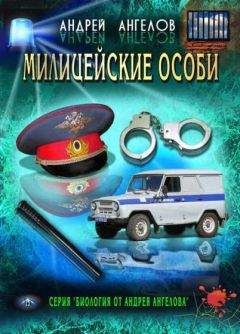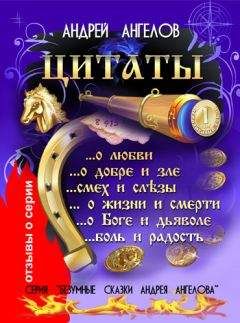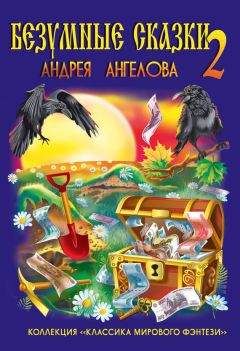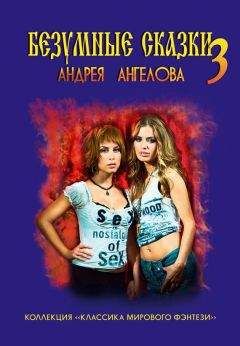Peake, Mervyn - 02 Gormenghast
Judging by the distances he had to cover during his journeys to and fro among the empty halls, and judging in particular by the distance between the room with the fireplace and the opening in the corridor of carvings (the only entrance he had found to the world he had previously known), he knew that lighting fires in his room involved no risk. Had smoke, for sake of argument been seen to rise into the air above a forgotten tract of the castle and were it to have caused any interest, it would have been as easy for the hypothetical observer to have found the chimney and then to have found a way into the compartment, fathoms below, as for a frog to play the fiddle.
There, on the bitter winter evenings, Mr Flay enjoyed a comfort he had never experienced before. Had his exile in the woods not inured him to loneliness, then he must surely have found these long days insupportable. But isolation was now a part of him.
The silence of the lifeless Halls, like the silence of the snow-bound world outside, was limitless. It was a kind of death. The very extent of the hollow expanses, the uncharted labyrinth that made, as it were, the silence visible, was something to raise the hairs upon the neck of any but those long used to loneliness. And Mr Flay, in spite of his numerous expeditions through this dead world, this forgotten realm of Gormenghast, was nevertheless unable to locate its boundaries. It is true that after a long search, guided to some extent by Titus' instructions, he had found the steps that led up the corridor of carvings, but save for this and the few locked doors through which he had heard voices, he had found no other frontier points between his world and theirs.
But in the small hours of one morning, as he returned to his room after a raid upon the kitchen, something happened which turned the rest of his winter into something less isolated but more terrible. He had left the corridor of carvings a mile or more behind, and was deep in his own realm, when he decided that instead of taking his usual path along the narrow and extended passageway to the east, he would explore an alternative corridor which, he imagined, would in its own good time lead to his own district.
As he proceeded he made, upon the wall, following his usual custom, the rough marks with white chalk which had more than once helped him to find his way back to familiar ground.
After about an hour of twisting and turning, of crossing the open junctions of radiating alleyways, of making a hundred arbitrary choices between this entrance and that, this winding descent and that cold incline to a wider passageway - he began to sweat with fear at the very thought of having taken no precautions for his return journey. He knew that he would never have found his way back without the chalk marks. Suddenly he began to feel hungry. At the same time, noticing that his candle was burning low, he drew another from the half-dozen or more that were always in his belt, and sitting down on the floor, placed his freshly lit candle carefully on the ground before him, and opening a long, narrow-bladed knife, began to cut himself a slice of bread.
To his right and left the darkness was as thick as ink. He sat illumined within the aura of candle flame, his face and rags and hands and hair dramatically lit. Behind him on the wall his shadow hovered heavily. He had stretched out his legs before him and was about to sink his teeth for the second time into the bread when he heard the peal of laughter.
Had it not been for its terrible strength and for the fact that it came from behind him - from the other side of the wall against which he leaned - he would have had no option but to recognize it as a cry of madness in his own brain - something that he had heard with the ears of his mind.
But there was no question of this. It had nothing to do with him, or his imagination; he was not mad. But he knew that he was in the presence of madness. For the demoniacal cry or howl was something that brought Flay to his feet as though he were drawn upwards on a fish-hook - something that took him, without his knowing that he had moved, to the opposite side of the passage where, flattened against the wall as though at bay, and with his head lowered he stared at the cold bricks against which he had been leaning, as though the wall itself were affected by the lunacy it was hiding and was watching him, its every brick deranged.
Mr Flay could hear his sweat splashing on the stones at his feet. His mouth was leather-dry. His heart was thumping like a drum. And he had nothing to see. Only the candlelight shining steadily at the base of the opposite wall.
And then it came again, with a kind of double note - almost as though. whatever throat it was that was giving vent to this ghastly laughter. was curiously formed - as though it were able to throw out two voices at once.
There was no question of an echo for there was no repetition and no over-lapping - but a kind of duplex horror.
This time, the high pealing note tailed off into a thin whine, but even in this ghostly termination there was the two-fold quality, the terrible, petrifying sense of double madness.
For some while after silence had returned, Mr Flay could not move. He had been struck. His sense of privacy had been shattered; his inability to rationalize and make sense out of the small hours was like an insult, an insult hurled against his narrow but proud mind. And his fear, his naked fear of something he could not see, but something which was within a few yards of him - it was this that froze his limbs.
But the silence continued and there was no repetition, and at last he picked the candle from the floor, and with more than one glance behind him, he moved rapidly back the way he had come, following the chalk marks until at last he arrived at the fateful parting of the ways. Thereafter he was on his own ground and he strode it without hesitation until he arrived at his room.
It was, of course, impossible to let the matter rest. The enigmatic horror of that laughter was with him all the time, and no sooner had the sun risen on the following day than the grim place drew him. It was not that he wished to indulge himself with the vile thrill of a repetition, but rather that the mystery should be brought forward into the rational daylight, and that whatever it was, beast or human, it must stand revealed, for his deepest interests were those of the one-time first servant of Gormenghast - of a loyalist who could not bear to think that in the ancient castle there were forces or elements at work, happenings that were apart from the ceremonial life, secrets and practices that, for all he knew, were deadly poison in the castle's body.
It was his intention to explore further along the terrifying passage and if possible to double back down some parallel artery when opportunity offered, and so discover if he could, some clue to what lay on the other side of the wall.
And this is what he did but with no success. Day after day he threaded his way through the cold brick lanes crossing and recrossing his own tracks, losing himself a score of times a day - returning over and over again to the original corridor for reference - unable to comprehend the tortuous character of the architecture. Every now and again, on returning to the place where he had heard the wild laughter he listened, but there was never any sound but the beating of his own heart.
There seemed no other way for him but to come again to that dread place, not in the daylight, but at the selfsame time as before, when the small hours of the morning sucked the courage from heart and limb. If he should hear it again, that crazed laughter, and if it was repeated and repeated, then with that sound to guide him it was possible that he could run to earth, in the darkness, what had foiled him by day.
And so, fighting down his terror, he set out in the icy blackness of the early hours. He came eventually to the brick corridor; and when he was still some distance away he heard a sound of crying and shouting. And when he was nearer still, a loud calling to and fro, as if something was calling to itself for it seemed to be the same voice that was answering.
But there was fear in the voice, or voices, and what struck Mr Flay most, as he listened with his ear to the wall, was that the cries were weaker than before. Whatever it was that cried had lost a lot of strength. But it was in vain that he tried to trace the sounds to their source. His questings through those same mazes of masonry that he had searched by daylight were fruitless. Directly he had left the corridor, the silence came down like an impalpable weight and the sharpness of his hearing was of no avail.
Again and again he did all in his power to locate the suffering creature, for Flay had begun to realize that it was nearing the end of its strength. It was not so much terror that he now felt as a blind pity. A pity that drew him to the place night after night. It was as though he had this nameless tragedy upon his conscience; as though his being there to listen to the weakening voice, was in some way helpful. He knew that this was not so, but he could not keep away.
The night came when for all his listening there was no sound, and from that time onwards the silence remained unbroken.
He knew that in some way the end had come to some demented thing. What it was that had laughed with that double note, that had cried out and answered itself with the same flat and terrible voice, he never knew. He never knew that he was the last to hear the voices of their ladyships Cora and Clarice, nor that he had been within a few feet of those apartments into which they had once been lured. He never knew that behind the locked doors of this place of incarceration the Twins had languished, their brains losing what grip they had, their madness mounting, until, when their provisions began to fail them, and Steerpike no longer came, they knew that death was on his way.
When weakness overpowered them they lay down side by side and staring at the ceiling, they died at the same moment, on the other side of the wall.
FORTY-SIX
While Flay, in his wilderness of hollow halls, was brooding upon the shock he had sustained, and fretting at its insoluble nature, Steerpike, now up and about once more, was losing no time in establishing his position as Master of Ritual. He was under no illusions as to what the reaction of the castle would be, when it became borne in upon them that he was performing no stop-gap office. To neither be old, nor to be the son of Barquentine, nor one of the accepted school of hierophants, nor indeed to have any claim upon the title, save that of being the only disciple of the drowned cripple's, and of having the brains to perform the onerous office, was an anything but encouraging inception.
Nor was he, physically, any longer personable. His hunched shoulders, his pallor, his dark-red eyes had never encouraged intimacy even supposing he had ever courted it. But now, how much the more so was he likely to be shunned, even in a society that laid no claim to beauty.
The burns upon his face and neck and hands were there to stay. Only the worms could put an end to them. The effect of the face was of something skew-bald; the taut crimson tissue, forming fiery patterns against the wax-like pallor of his skin. His hands were blood-red and silky; their creases and wrinkles like those on the hand of a monkey.
And yet he knew, that although he created a natural revulsion among those about him, the reason for his disfigurement stood in his favour. It was he who had (as far as the castle knew) risked his life to save the hereditary Master. It was he who had suffered delirium and excruciating pain because he had had the courage to try and wrest from death's grip a keystone of the Gormenghast tradition. How, in that case, could his diabolical appearance be held against him?
And what is more he knew, however prejudiced his opponents might be, that in the end they had no option but to accept him, in spite of his burns, his background, and the unproven rumours which he knew were in constant circulation - to accept him, for the simple reason that there was no one else with the necessary knowledge at his finger tips. Barquentine had divulged his secrets to no one else. The very tomes of cross-reference would have been beyond the powers of even the most intelligent of men to comprehend, unless, as a preliminary, he were schooled to the symbols involved. The principle upon which the arrangement of the library was based was, in itself, something which had taken Steerpike a year to unravel, even with Barquentine's irritable guidance.
But cunningly and by slow degrees, as he went about his work, he evoked a grudging acceptance and even a kind of bitter admiration. By not so much as a hair's breadth did he deviate from those thousand letters of the Groan law, that day by day in one form of ritual or another, were made manifest. With every evening he knew himself more deeply entrenched.
His miscalculation over Barquentine's murder had been unforgivable and he did not forgive himself. It was not so much what had happened to his body that galled him, but that he should ever have blundered. His mind, always compassionless, was now an icicle - sharp, lucent and frigid. From now onwards he had no other purpose than to hold the castle ever more tightly in the scalded palm of his hand. He knew that his every step must be taken with the utmost precaution. That although, on the face of it, the life of Gormenghast was, in spite of its rigid tradition, a dark and shambling affair, yet there was always this consciousness beneath the surface; there were those that watched and there were those that listened. He knew that in order to fulfil his dreams he must devote. if necessary, the next ten years to the consolidation of his position, taking no risk, learning all the while, and building up a reputation not only as an authority on all that pertained to the traditions of the place, but as someone who, indefatigable in his zeal, was nevertheless difficult to approach. This would both leave what free time he had for his own purposes, and help to create for himself the legend of a saint, someone removed, someone beyond questioning, for whom, in his early days, the tests of fire and water had not been too terrible to endure when the soul of Gormenghast was in jeopardy.
The years lay spread before him. To the younger generation he would be a kind of god. But it was now in the diligence and exactness of his offices that he must carve for himself the throne that he would one day occupy.
For all the evil of his early years he knew that, though from time to time he had been suspected of insurrection and worse, yet now with his feet well set upon the gold road of advancement, he was (with the darkest of his deeds but a week or two behind him) as free as ever he had been from any question of being unmasked.
He was now close upon twenty-five years old. The fire that had mottled his face had taken no lasting toll of his strength. He was now as wiry and tireless as before the catastrophe. He whistled to himself, between his teeth, tunelessly as he stood at the window of his room and stared out across the snow.




